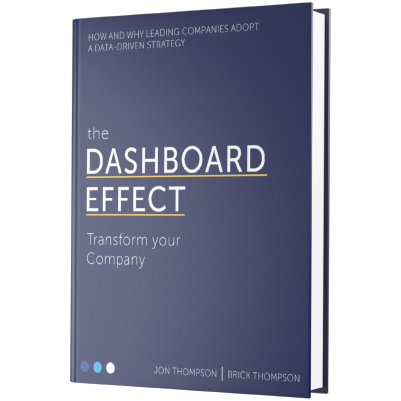“I have a feeling we're going to see Microsoft, because of their partnership with OpenAI and their work with ChatGPT-4 and other tools, start to point analytics chatbots at data stores. If you have a data lake ready to go, you'll be able to [leverage those tools] immediately and start getting answers.” – Brick Thompson, CEO, Blue Margin
Updated 6/2/2023: Brick’s prediction held up, and Microsoft has announced the future release of the Fabric data platform and related Copilot AI tools.
This will be a significant development for companies that understand the value of data and want to fast track analytical capabilities to increase enterprise value.
In addition to consolidating Microsoft’s data stack into a single platform, Fabric will offer natural language queries for normal business users to pose questions of their company’s data. And, thanks to the delta lake technology, companies will be setup to leverage ML & AI applications.
This platform will not only provide near-term benefits (data visibility, automated BI), but also long-term benefits in establishing the foundation for advanced analytics. Schedule a no-cost consultation with us, and we can help you determine the best strategy for your company.
Why Data Lakes?
It’s no secret that the first 100 days are critical to the success of an acquisition. The early days after deal closing are the most important in terms of launching the value creation roadmap and ensuring alignment between the PE sponsors and portfolio executives. A key component of the value creation roadmap is identifying needed infrastructure investments and the right timing for their implementation (Krucke and Matthews, 2022).
In terms of the data investments that should be prioritized in the first 100 days to yield both immediate and long-term ROI, we recommend a data lake centered approach.
Listen to Brick and Kate discuss this in our latest podcast episode, Why Build a Data Lake in the First 100 Days:
Take all the data from your transactional systems from your platform company and your add-ons, and put it all into a data lake. From there, you can start giving access almost immediately to analysts and report writers. You can put a semantic layer on top of it, so even technical executives can get to that data and meaningful outputs almost immediately.
Brick Thompson
Data Lakes for Buy-and-Build Strategy
With the prevalence of the buy-and-build strategy in private equity and the midmarket, platform companies face the complexity of integrating data from disparate companies and source systems. A data lake enables integration in as little as a few weeks, as opposed to the several months a traditional data warehouse can take to build. And this approach doesn’t preclude later migration of some or all data into a traditional data warehouse for enhanced governance and master data management down the road.
Data Lakes and AI Tools
Besides bringing order to the sometimes chaotic data landscape of buy-and-build investments, it also sets those companies up to leverage the coming AI analytics tools. Power BI, for example, has a Q&A function that is likely to see massive improvement as Microsoft brings more of OpenAI’s technology to their software. Companies integrating their data now will be able to take advantage of these technological advances as soon as they become available, potentially giving them an advantage over their competitors who haven’t done the same.
Important note: Your ability to effectively leverage AI depends on clean underlying data. As you’re planning, read our point of view on investing in data fundamentals before pursuing AI and our interviews with CTO Andy Scott and CIO John Manzanares.
Quick Recap: The Benefits of a Data Lake
- For buy-and-build companies, quick consolidation of data across business units, source systems, and subsidiaries into a data lake can greatly speed access to valuable insights.
- Data lakes provide quick access to data for early reporting as well as a sandbox for analysts.
- A data lake is a highly scalable and flexible data repository with the option for future migration to a traditional data warehouse. (Traditional data warehousing still provides some distinct advantages in terms of data governance and quality management.)
- AI technologies are evolving rapidly, and a consolidated data lake environment will provide a distinct competitive advantage for putting them to immediate use.
